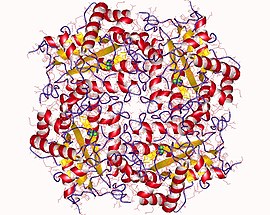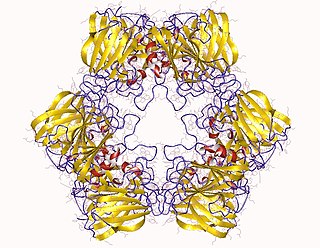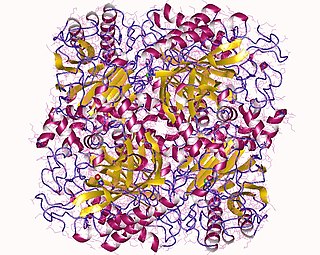| allantoinase | |||||||||
|---|---|---|---|---|---|---|---|---|---|
 Allantoinase (analog) tetramer, Pseudomonas fluorescens | |||||||||
| Identifiers | |||||||||
| EC no. | 3.5.2.5 | ||||||||
| CAS no. | 9025-20-1 | ||||||||
| Databases | |||||||||
| IntEnz | IntEnz view | ||||||||
| BRENDA | BRENDA entry | ||||||||
| ExPASy | NiceZyme view | ||||||||
| KEGG | KEGG entry | ||||||||
| MetaCyc | metabolic pathway | ||||||||
| PRIAM | profile | ||||||||
| PDB structures | RCSB PDB PDBe PDBsum | ||||||||
| Gene Ontology | AmiGO / QuickGO | ||||||||
| |||||||||
In enzymology, an allantoinase (EC 3.5.2.5) is an enzyme that catalyzes the chemical reaction
- (S)-allantoin + H2O allantoate
Thus, the two substrates of this enzyme are (S)-allantoin and H2O, whereas its product is allantoate.
This enzyme belongs to the family of hydrolases, those acting on carbon-nitrogen bonds other than peptide bonds, specifically in cyclic amides. The systematic name of this enzyme class is (S)-allantoin amidohydrolase. This enzyme participates in purine metabolism.





